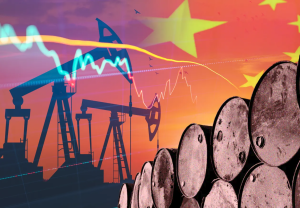The US asphalt market faces uncertainty as President-elect Donald Trump’s proposed tariffs on Canadian imports could restrict supply and drive up prices for American buyers. Trump’s plan includes a 25% tariff on all imports from Canada and Mexico, set to take effect after his inauguration on January 20.
While industry insiders speculate that the tariff threat may serve as a negotiation tactic, concerns are mounting. The Canadian Association of Petroleum Producers warned that higher tariffs would inflate energy costs for American consumers. Despite this, Trump reaffirmed his stance on January 7, stating, “We are not treated well by Canada.”

Market participants fear that asphalt prices could skyrocket if the tariffs are enforced. Canada accounted for approximately 73% of US Atlantic coast waterborne asphalt imports in 2024, according to Kpler data. With the east coast facing a supply shortage and only one domestic producer—PBF Energy—the situation is tense. PBF temporarily shut down a crude distillation unit in October due to unfavorable refining economics.
Rising imports from Canada had driven cif New York prices down by $95 per short ton between June and October 2024—a rare trend for the season. Rail-delivered asphalt volumes are also under threat, as monthly US imports of Canadian asphalt totaled 5.23 million barrels through October, according to the US Energy Information Administration (EIA).
Should tariffs be imposed, importers may look to alternative sources, though challenges loom across the Atlantic. Refinery closures in the Mediterranean and potential Venezuelan sanctions could further constrain supply. Although Venezuela’s rising asphalt flows and the restart of an asphalt unit at Curacao’s Isla refinery may offer temporary relief, uncertainty remains.

Tariffs could also disrupt heavy crude flows, diminishing US asphalt production. Canadian crude accounts for 65% of midcontinent crude runs, with imports totaling 863 million barrels from January to October 2024—an 8% increase year-over-year. Any diversion of Canadian crude to Asia-Pacific markets via the Trans Mountain Expansion pipeline could raise costs for US refiners.
Mexico, the second-largest supplier of crude to the US, could also see reduced asphalt production if tariffs impact imports to the Gulf coast, adding further strain to an already volatile market.





